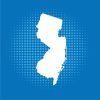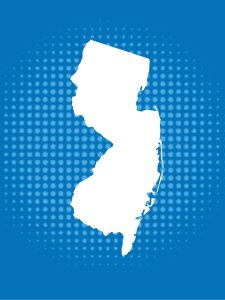In New Jersey, parents are not required to notify or otherwise seek permission to homeschool their children.
History
New Jersey is in the northeastern United States and legalized homeschooling in 1967, also known as nontraditional schooling in the state. There are three options for educating a child from home in New Jersey.
Regulation
New Jersey supports parents choosing a nontraditional mode of education for their children, ages 6 to 16, with a dedicated webpage specifying the various choices and associated requirements. They also have a helpful FAQ section specific to homeschooling.
Parents are not required to notify the state or local district of their intent to homeschool. There is one exception: If a high school student leaves a public school for homeschooling, the parents must complete a transfer form. Otherwise, parents are encouraged to notify their local school boards to avoid truancy issues. See N.J. Legislative Statutes (state.nj.us) and navigate to Title 18A for Education Statutes for more information.
There are no requirements regarding attendance records, minimum instructional time, or subjects. However, parents are expected to provide an “equivalent education.” Similarly, there are no minimum education or certification requirements for parents.
No state policy on homeschool students’ access to public school classes or activities exists. Nonpublic school students may have part-time access to extracurricular activities provided at public schools. However, no explicit statute governs this limited access. Access is determined by each district. Further, nonpublic students do not have access to public school course offerings, and funding is not available.
Despite otherwise limited access to public school offerings, students with special needs in New Jersey are guaranteed services. Specifically, “in accordance with the federal special education law, Individuals with Disabilities Education Act (P.L. 108-446 §612), the board of education must ensure that “all children with disabilities residing in the State, including children with disabilities attending private schools, regardless of the severity of the disability, and who are in need of special education and related services, are identified, located and evaluated…” See here for details.
State Data
New Jersey does not require parents to file information about their homeschool participation and, therefore, does not report homeschool participation for the state. Nevertheless, the U.S. Census survey provides some hints at homeschool participation in the state. The U.S. Census estimates indicate that around 4.7% of New Jersey families homeschooled in the spring of 2020 and increased to 10.7% by the fall of 2020. Considering the 2022 and 2023 school years, the U.S. Census found that 2.1% of New Jersey K-12 students, on average, were homeschooled during this time.
Cross-Sector Comparison
We cannot calculate a cross-sector comparison because we lack information on homeschool participation.
School Choice Context
Parents in New Jersey have multiple nonpublic school choice options. However, none are publicly funded. Choices include open enrollment in traditional public, private, magnet, charter, and virtual online schools.
Commentary
The regulatory burden on families homeschooling in New Jersey is low. The state also provides a generous suite of web pages to inform parents about the options and requirements. However, access to these choices is limited to families with the resources to make a nontraditional choice. Access is further limited to educational opportunities offered in public schools. Most states offer some access and even funding to some or all nonpublic students in their states. New Jersey could improve education in its state by offering more equitable educational access to all families.

-
5.9% Families
Around 5.9% of families in New Jersey homeschooled prior to the pandemic.
-
1967 Legalized
Homeschooling was legalized in 1967 in the state of New Jersey.
-

-
More Information
5.9% Families
Around 5.9% of families in New Jersey homeschooled prior to the pandemic.
1967 Legalized
Homeschooling was legalized in 1967 in the state of New Jersey.

More Information
Last updated December 2023.